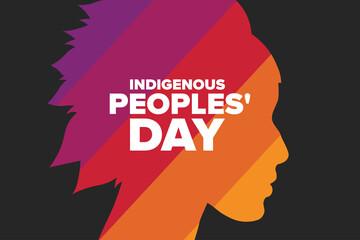Indigenous Peoples’ Day, observed in several states and hundreds of cities throughout the U.S., falls generally on the second Monday of October and began as a counter-celebration to the national holiday of Columbus Day. Originating from a 1977 conference sponsored by the United Nations regarding discrimination against Indigenous Populations in the Americas, it took hold in California in 1992 to coincide with the 500th anniversary of the arrival of Columbus in the Americas, dating from October 12, 1492.
Since then, at least twelve states no longer celebrate Columbus Day, naming the former federal and state holiday instead as “Native American Day”. This was done in part to recognize several tribal governments’ requests to so name the day. Where recognized, it is generally done to experience and celebrate the distinct cultural and religious diversity of indigenous populations and the significance of those cultures to the development of present-day America.
As it seems with many things today, the change over from Columbus Day to Indigenous Peoples’ or Native Americans’ Day celebrations, and even the blending of celebrations of the two has not come without controversy. Columbus Day, first designated as Italian Heritage Day in 1934, itself originated partly as a response to anti-Italian sentiments across our nation. Becoming Columbus Day as an officially recognized national holiday in 1971, many in the Italian American community wish to keep the two celebrations distinct. Others believe that a continued celebration of Columbus Day only reinforces a history of European colonialism in the Americas and the resulting subjugation of pre-existing cultures.
Regardless of the viewpoint espoused, it seems clear that society will continue to struggle with these differences of opinion for some time to come. Whether you celebrate Indigenous Peoples’ Day, Italian Heritage Day or neither, perhaps the simple solution is to recognize that both celebrations can co-exist if based on the same premise: that all those that came before us, regardless of heritage, have in some way made us, the United States of America, what we are today, a complicated, multi-culturally diverse nation. For better or worse, we are an amalgam of those that came before us. I choose better. As a firm, we choose the path that allows for recognition and celebration of all cultures that comprise, and have contributed, to what our country is today.
John A. Rego is a partner in the firm’s Maryland (Metropolitan D.C.) office.

